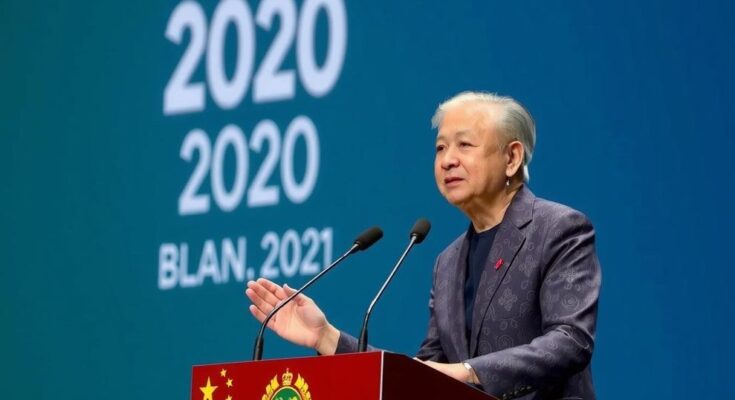Brazilian President Lula da Silva opened the G20 Summit by launching a global alliance to address poverty and hunger, asserting their political roots. Supported by 81 countries, the initiative comes amid geopolitical tensions from the Ukraine conflict and focused discussions on climate change and economic disparity. While President Biden attends, major absences raise questions about unity and commitment among member nations as they tackle critical global issues.
Brazil’s President Luiz Inacio Lula da Silva inaugurated the Group of 20 Summit in Rio de Janeiro by announcing a global initiative dedicated to combating poverty and hunger. In his speech, Lula asserted that the roots of these issues are influenced by political decisions, as he urged world leaders to confront climate change decisively. The initiative garnered support from 81 nations, including 18 of the G20 members, along with the European Union and African Union, with Argentina being the sole G20 country abstaining from participation under President Javier Milei’s far-right administration. The summit is overshadowed by ongoing conflicts in the Middle East and Ukraine, with discussions also focusing on climate action and economic disparities. While not formally on the agenda, the impacts of the Ukraine conflict are anticipated to surface in side discussions. Notably, Russian President Vladimir Putin is absent from the summit, faced with an international arrest warrant, while Foreign Minister Sergey Lavrov represents Russia. The summit is crucial for US President Joe Biden, marking a global diplomatic farewell and emphasizing climate responsibility amidst a significant policy shift related to Ukraine.
The G20 Summit convenes the world’s largest economies, providing a platform for addressing pressing global issues such as poverty, hunger, and climate change. President Lula seeks to leverage Brazil’s hosting of the G20 to advance his administration’s priorities, which include social equity and environmental sustainability. The backdrop of geopolitical tensions, including the wars in Ukraine and the Middle East, further complicates discussions among member states. Climate finance and the commitment to reducing global warming remain critical topics, particularly in light of international agreements such as the Paris Agreement.
The G20 Summit serves as a pivotal meeting for world leaders to address major challenges, including hunger, poverty, and climate change. Through his initiative, President Lula aims to unify nations in a collective effort against these issues. As discussions unfold amidst geopolitical tensions, the need for cooperation and decisive action remains crucial if real progress is to be achieved. Furthermore, the pressures from international climate obligations cast a spotlight on the necessity for holistic solutions to global warming and development finance.
Original Source: www.aljazeera.com




